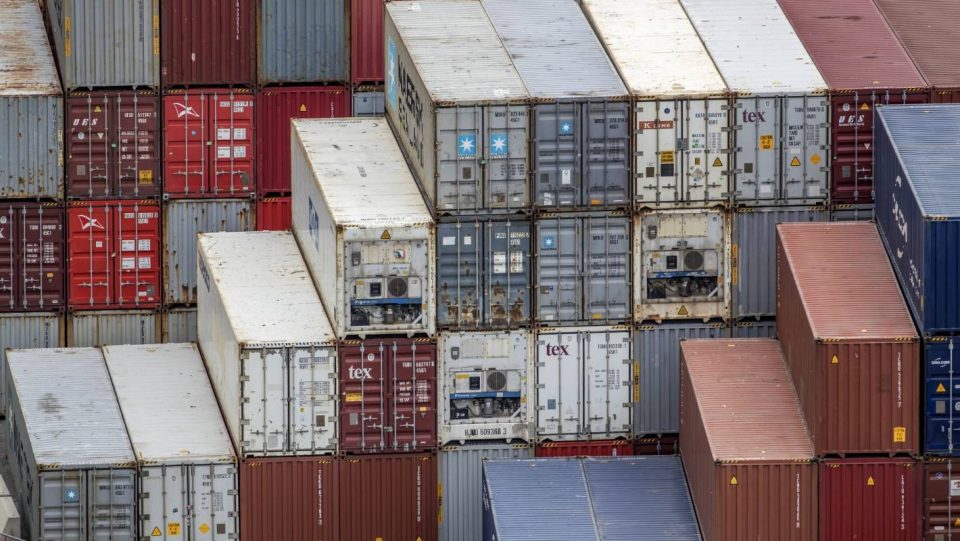A “pile-up” is looming at the country’s ports that will restrict the movement of food and medical supplies if non-essential freight destined for closed businesses can’t be cleared, Road Transport Forum chief executive Nick Leggett has warned.
“All manner” of freight could arrive at the same time on cargo ships, he said.
“We now have a situation where many businesses that receive some of that freight are closed and there is nowhere for it to go,” he said.
“The issue with non-essential goods is you can remove them from the port, but if there’s nobody at the receiving end at work, where do you put them?’
The Government needed to recognise that “all freight must move” during New Zealand’s coronavirus lockdown, and not just essential items, Leggett said.
READ MORE:
* Live: Coronavirus updates
* Consumers will be able to shop online only for essentials during lockdown
* Coronavirus – Truckers call on Govt to provide more clarity on what’s an essential delivery
SUPPLIED
Containers need to be cleared and emptied to ensure essential supplies can get in and exports can get out, Road Transport Forum chief executive Nick Leggett says.
He forecast “constipation” at the ports and massive problems, if the issue wasn’t addressed.
“This an absolute real live thing.”
Officials at the Transport Ministry had “definitely listened” to the forum’s concerns, but had said the rules stand at this point, he said.
“If it is deemed by the Government to not be essential, it cannot be moved.
“We absolutely appreciate the reasons for that but if we don’t have an ‘all-of supply’ chain solution to this we believe there will be issues in a couple of weeks,” he said.
Some ports would be struggling “even by the end of the week”, he said.
The ministry has been contacted for comment.
The forum would not have put out its warning lightly at this time, Leggett said.
Reopening closed businesses to accept non-essential freight would “fly in the face” of the reasons for the lockdown, which were to keep as many people home as possible, he said.
“We do appreciate that, but we need a solution.”
Customs Brokers and Freight Forwarders Association chief executive Rosemary Dawson agreed that the delivery of non-essential cargo was an issue that would need to be dealt with to avoid congestion.
“Sea freight was operating fairly normally now,” she said on Wednesday.
But her industry was grappling with the issues, she said then.
The Road Transport Forum has suggested that some goods that can’t be delivered to closed businesses could be stored on land owned by Kiwirail, but Leggett believed that could only be part of any remedy.
Leggett said some truck drivers had been stopped by police and asked what they were doing on the roads.
“Well, they are doing a job and it is one that is essential at a time like this.
“They cannot be forced by the Government to be arbiters of what is essential and non-essential on the back of their truck,” he said.
Leggett said the trucking industry totally supported the move to a state of national emergency to prevent the spread of Covid-19.
“But closing down the country to the scale we have now hasn’t been done before and it does reveal some issues that need to be addressed pragmatically.”
Another problem was that if containers in which non-essential goods were imported were not emptied, there would be a shortage of containers for exported goods going out, he said.
“All freight needs to move during this time to enable the valuable exports that are going out, such as kiwi fruit, access to ports.
“Ships will stop coming if they cannot unload, and we may miss out on essential supplies.”
To illustrate the problem, Leggett said 14,000 cars were expected to arrive from Asia over the next month.
“Those cars cannot stay on the port; they have to go somewhere. The dealers that would normally take them are closed.
“We appreciate cars are not an essential service, however, they are holding space that is needed for essential goods.
“Our industry is looking at how we could find storage for the freight with nowhere to go, but we need the Government to allow that freight to move,” he said.


